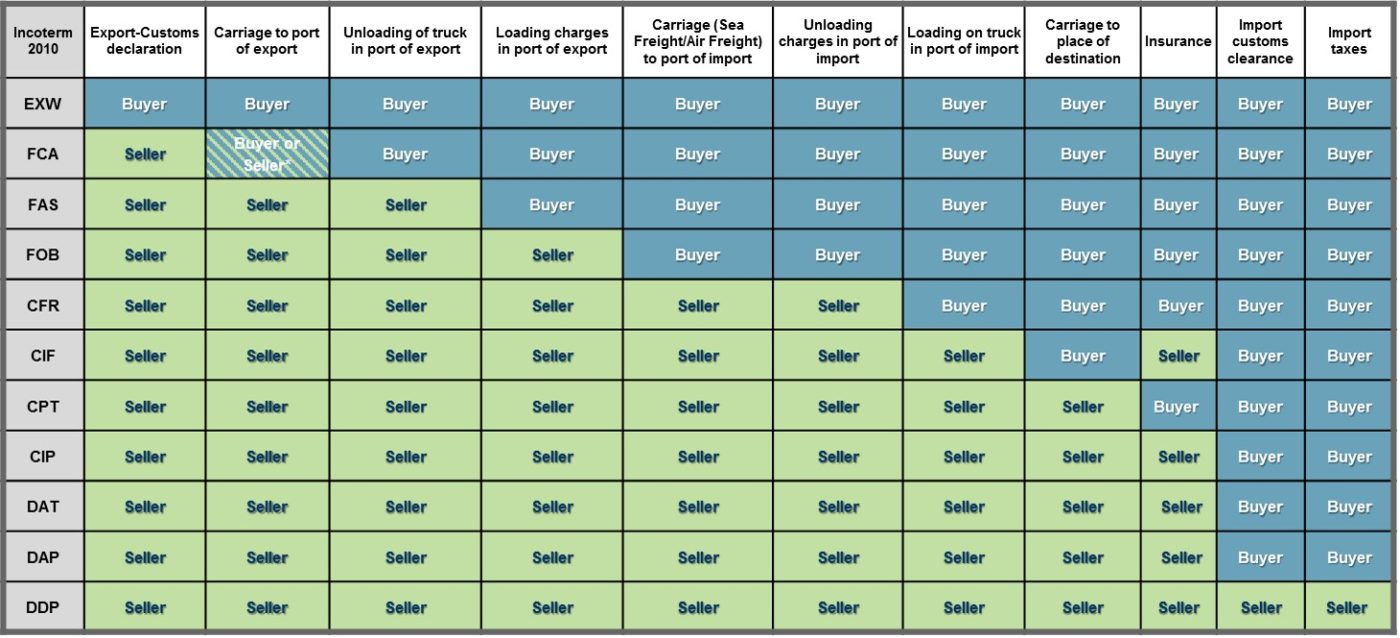Prepaid and add - along with collect - are freight billing terms, although some confuse the subject with the transfer of ownership and liability that occur between the seller and buyer.
In this article we will cover prepaid & add and collect billing terms, along with their relationship to FOB and INCOTERMS.
Definition of Prepaid & Add
Prepaid & add, often designated as PPD & add, is when the consignor or shipper, pays the freight bill for the shipment it is moving for its customer, then charges its customer after delivery.
Prepaid and add invoices are typically rolled up into the invoice the customer receives for the goods it purchases.
Important Aspects of Prepaid and Add Freight Billing:
- There is typically a hefty mark-up of profit on the charge.
Because of the positive impact a company can obtain on its cost and service supply chain components, we recommend reading the following articles for a deep dive into the topic of Inbound Freight Management.
Definition of Collect
 When a shipment is moved collect, the receiver of the shipment is responsible for paying the invoice. The receiver is often called the consignee.
When a shipment is moved collect, the receiver of the shipment is responsible for paying the invoice. The receiver is often called the consignee.
It is important to note that the freight provider will not release the goods to the receiver until they are paid for the shipment and ancillary charges associated with moving the freight on their behalf.
Definition of Third Party Billing (TPB)
Neither the shipper or consignee is responsible for paying the invoice. Instead, a third party is responsible for the bill associated with the freight load.
Confusion on Billing Terms and Ownership Terms
An important point to make before closing out the concept of freight billing is the billing does not determine when the goods within a shipment pass ownership from the seller to the buyer. All prepaid & add and collect indicate is when the freight invoice is to be paid.
Definition of FOB and INCOTERMS
INCOTERMS and FOB (Freight on Board) terms determine when title of goods is transfer, liability, risks, costs, and ownership of goods transfers from the seller to the buyer.
So, under FOB terms, a shipment can be either FOB prepaid & Add or Collect. Typically FOB is either FOB Origin or FOB Destination, where FOB Origin indicates the buyer takes ownership and all liability at the point of origin, while FOB Destination indicates the buyer takes ownership once they sign for it at their receiving dock.
Over time the majority of the supply chain industry has moved away from FOB to INCOTERMS because of the confusion FOB often brought into the buyer - vendor relationship, although you will still find some use FOB terms.
Like FOB terms, INCOTERMS set the cost division and liability of both parties involved in the international transaction, but with greater detail. Keep in mind, INCOTERMS highlight the process of the goods moving from buyer to seller, not the legal terms of a contract or property rights.
The International Chamber of Commerce (ICC) is the governing body that publishes the INCOTERMS and are updated every ten years.
For more on INCOTERMS, we recommend reading “Overview of Incoterms Defined”.
A listing of the INCOTERMS are provided below.
To learn more about Intek Freight & Logistics and the logistics industry, we invite you to visit our website and subscribe to our weekly blogs.
Talk To Us
We're Here to Help



